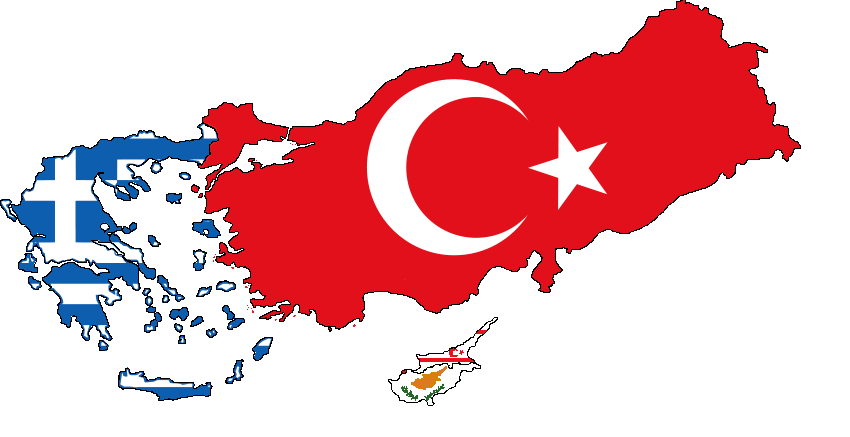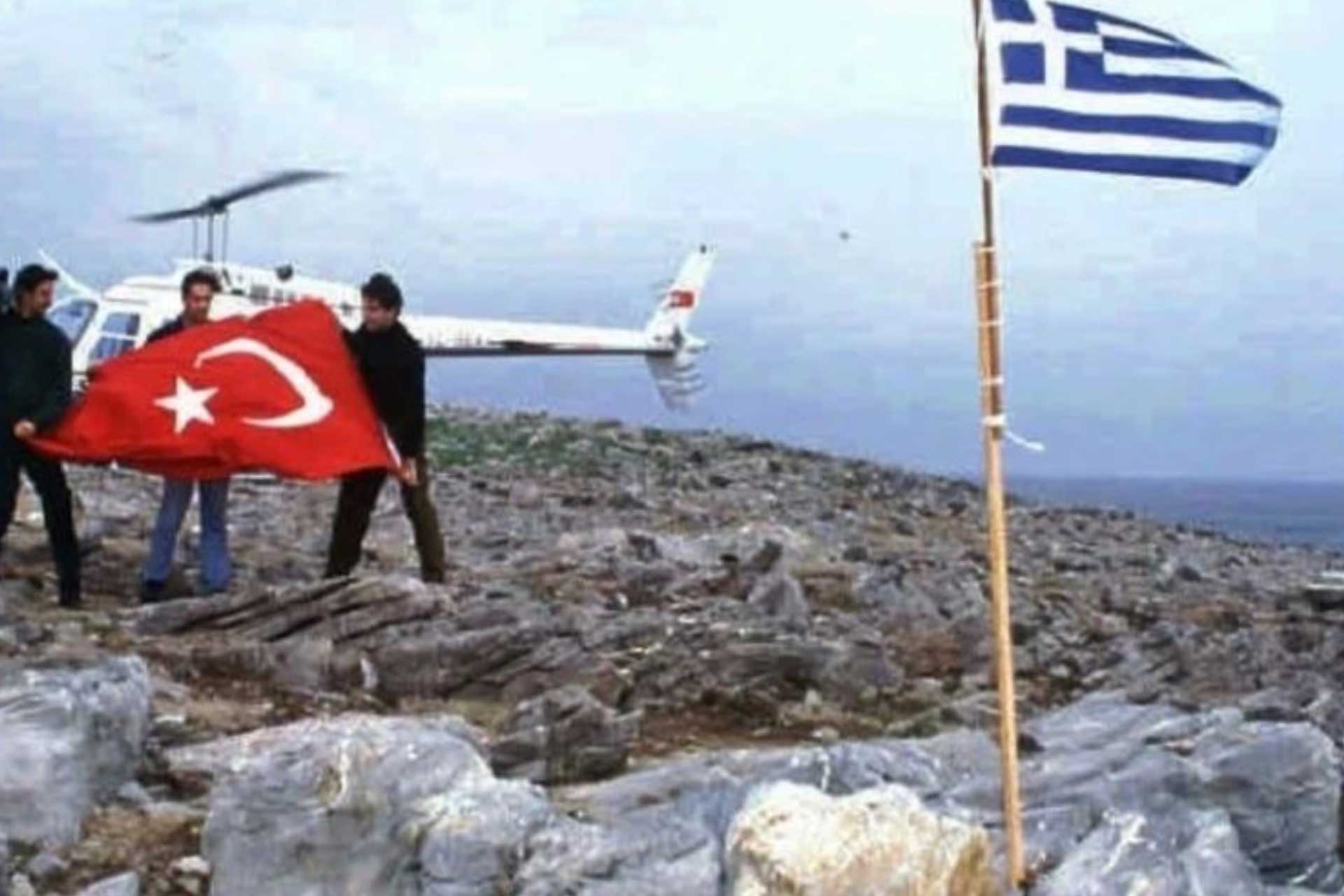About Populism and its effects on Greco-Turkish relations
Greco-Turkish politics were mostly shaped by the populist rhetoric present in those countries. So to understand the relations between and estimate its future, we need to analyze the factors that affect this relationship deeply. So first, we need to define maximalism but since Maximalism is a very broad concept in various fields ranging from philosophy, arts, and politics; we included a terminal explanation. In Collins English Dictionary (2014), a “maximalist” is defined as someone who prefers swift and straight action to fulfill his goals without any compromise. The crucial points are the presence of a take-all perspective and the lack of any compromise.
As it is deeply rooted in the concept of populism, the presence of a common and an exaggerated problem benefits the agenda of populist actors and Southern Europe is a good canvas for such. Greece, being one of the most popular victims of these discourses, suffered a lot from the political and economic crises that hit the Eurozone. These habitable conditions evolved into some of the most unique forms of government (Chryssogelos et. al., 2023, p. 64) as populism became the only way to gather enough public support to have any say in the political arena. As it undermined the ideological principles, seeing weird forms of coalitions like the one between leftist SYRIZA and far-right ANEL became possible (Chryssogelos et. al., 2023, p.64). These parties continued to increase their power with their populist policies, mostly Eurosceptic, which eventually led to a populist foreign policy as explained in the previous chapter. In the end, even populist governments like the Greek one might not be able to hold onto power forever, but their marks on the policy-making agenda become permanent. Also, the later governments might still utilize the ways of their populist predecessors to ensure public support and their power.
As for the case of Türkiye though, populism plays a different role than its European counterparts. Tripathi (2023) highlights that populism in Türkiye appeared and was facilitated earlier and easier thanks to the existing divide between two different social outlooks (p.87). From time to time, one side became the victim of the other’s populist remarks. At least for the last 25 years, secular Kemalists became the antagonists of conservative and Islamist parts of the society facilitating itself in Erdoğan’s rule (Tripathi, 2023, p.88). As Erdoğan increased the populist rhetoric, Turkish foreign policy became almost impossible to predict, proving the earlier impact of populism on foreign policy and bilateral relations.
The problems present in the Greco-Turkish relations are evaluated in a different chapter but to summarize again, populism in these states continuously harmed the relations in between up to this day. On the other hand, there are also specific examples in which the states do not act like we see in the Greco-Turkish example. The states in such examples usually seek to have a fair and agreeable conclusion to the disputes despite the possible benefits of populist rhetoric and full material gains. To explain this in conflict resolution and maritime disputes more, I will compare two different disputes with different statuses to explain this behavior. The compromise example is the Black Sea maritime dispute between Romania and Ukraine. After the dissolution of the Soviet Union in 1991, Romania and Ukraine faced a dispute over their Black Sea maritime boundaries. Then in 1997, they agreed to take the case to the International Court of Justice (ICJ) in case diplomatic efforts failed to solve the dispute (Romanian Ministry of Foreign Affairs, 2008). ICJ made a judgment on the case and declared a three-step solution finding a middle ground (International Court of Justice, 2009), thus ending the dispute while the countries respected the decision later on. Overall, the Romania-Ukraine example is a good case to study to understand how a dispute can be solved without further aggression and an example to be considered as an alternative to our main case. However, in the second example, The South China Sea Dispute, the People’s Republic of China (PRC) acts completely different than The Black Sea case, even more radical than the case of our own. As can be seen in Figure 1, the PRC claims the so-called “Nine Dash Line” shown as the red line while blue lines are the respective claims of other involved nations.

In Figure 1 it can be seen that the PRC is trying to assert its claim to all of the South China Sea without leaving any room for a compromise or a divide. They back these maximalist claims with their immense military presence in the area, using military might over the diplomatic options contradicting ideal pathway of cooperation and the gains will be historic if they succeed. Billions of dollars worth of resources and dominance over the zone will empower the PRC for sure. On the other hand, the South China Sea Dispute played a key role in the diplomatic or military conflicts between the PRC and Vietnam (Guan, 2010) for decades. One of these conflicts was the small-scale clash over the Spratly Island Reefs in 1988 (Lipes, 2018). Even though the PRC emerged as victor (Lipes, 2018), it became one of many crises that dealt a significant blow to Vietnamese-Chinese relations which the Vietnamese still continue to protest to this day (Lipes, 2018). The material or the temporary gains can be tempting but its opportunity cost on the Chinese-Vietnamese relations was also significant just like in our case.
The evident maximalism that is becoming increasingly more visible in today’s politics is eventually connected to populism by its roots. States risk conflict and escalation for their agenda and material gains against compromising and it is only possible to see which choice creates more benefit in the end after everything is over. As the problems between states run deeper, populism-prone countries like Greece and Türkiye struggle to decide which way to follow, and worryingly the time for a final decision might be sooner than everyone believes.
.
- Chryssogelos, A., Giurlando, P. & Wajner, D. F. (2023). Populist Foreign Policy in Southern Europe, Populist Foreign Policy: Regional Perspectives of Populism in the International Scene, Palgrave Macmillian, https://doi.org/10.1007/978-3-031-22773-8
- Deiwiks, C. (2009). Populism. Living Reviews in Democracy, 1, 1–9, https://search.ebscohost.com/login.aspx?direct=true&db=asn&AN=48617728&site=eds-live
- Guan, Ang C. (2010), The South China Sea Dispute Revisited, Australian Journal of International Affairs, https://doi.org/10.1080/713613514
- International Court of Justice (2009), Maritime Delimitation in the Black Sea (Romania v. Ukraine). https://www.icj-cij.org/case/132
- Lipes, J. (2018), Vietnam Marks Anniversary of Naval Clash With China Over Spratly Island Reefs, Radio Free Asia, https://www.rfa.org/english/news/vietnam/anniversary-03132018160914.html
- Romanian Ministry of Foreign Affairs (2008), Romania v. Ukraine at the ICJ: Maritime Delimitation in the Black Sea, https://www.mae.ro/en/node/2094



Comments